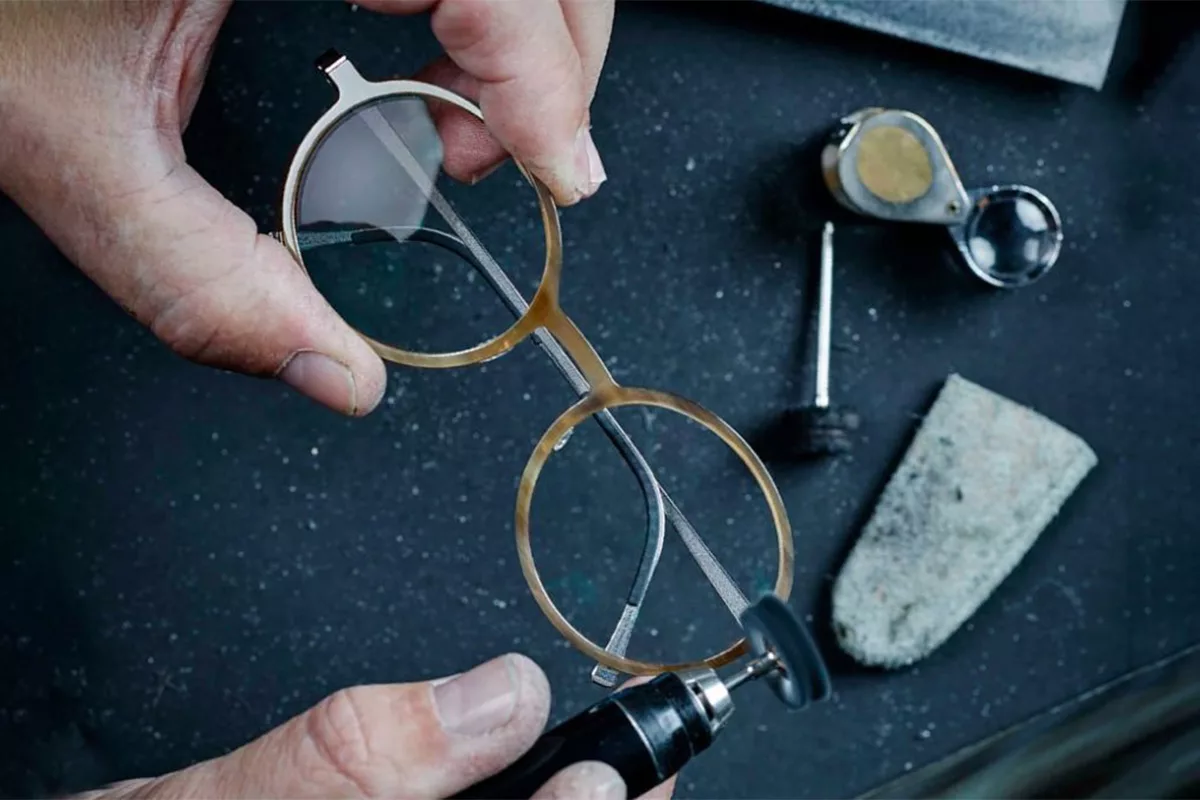The idea of wearing sunglasses only during summers is completely old school and untrue. The truth is that it is equally important to wear sunglasses in winters…
Love the winter, yet hate the fact that you may not be able to flaunt your sunglasses as much as you could in summer? Here’s some good news. Studies confirm that your eyes need just as much protection in winter as they would in the sunny summer days.
Cold winter winds can be just as pesky irritants as the blistering summer breeze, causing aridity in the eyes. But that’s just a part of the winter problem.
The general assumption is that since the sun’s rays are not harsh in the winters, they wouldn’t be as harmful. The fact though, is that the winter sun could cause as much or, in some cases, more harm than summer.
Since the sun sets lower in the sky during the winter as compared to summer, we’re likely to have increased amount of exposure to ultraviolet (UV) rays. And in the Middle East particularly, one is simply more likely to spend time outdoors during winters, chilling at the beaches, camping out on the dunes or perhaps fishing in the middle of the sea. Take your pick. And choose sunglasses to match the place, ensuring that your lenses offer UV protection.
Protection from UV Radiations
Generally speaking, sun’s ultraviolet or UV radiations are always present even if the sun’s not shining. The harmful UV rays from the sun cause severe and lasting damage to the eyes, which is why there is a definite need to protect the eyes from these radiations. In case you’re planning a holiday, be warned that during winters, in the snowy region the dose of the UV rays is doubled, first from the sun and the second from the snow’s reflection.
A human eye can possibly handle only so much of radiation as the pupils try to save the retina from excessive exposure, but a protective layer of lenses is very vital to reduce the glare and provide a more comfortable vision.
A simple way by which one can reduce the damage is by using polarised lenses, which is the most recommended protective shield for dangerous radiations.
Improvement of the Vision
Regardless of the time you spend under the sun, there are eye-conditions that precipitate Photokeratitis, also known as flash burn or sunburn of the cornea which is caused by spending a short time, as short as a day, without protection from the sun. Hence, it is advisable to wear sunglasses during winters at all times.
At higher altitudes, the ultraviolet radiation further increases. So, during winters, while driving or playing any sport, it is guided to wear premium quality lenses with 100 percent UVA/UVB protection.
While a short time spent under the sun even during winters can cause severe damage, longer duration of prolonged exposure inflates the chances of developing cataracts and macular degeneration. Thus, it is very important and a major necessity to wear sunglasses during winter.
Protection from wind, dust and debris
Eyes are the most sensitive part of a human body that need extra care and attention. During winters, the wind is colder and heavier which leads to evaporation of natural moisture from the eyes. The use of sunglasses creates a barrier and prevents the eyes from getting in contact with the wind, dust particles and debris that at times can even harm the organ permanently.
For people who wear contact lenses, sunglasses help in conserving the moisture and prevent windblown particles from inducing corneal abrasions. For prevention of such injuries, close-fitting, wraparound sunglasses are particularly effective. Also, some sunglasses have lenses that come with hydrophobic coatings that repel water, oil, dust etc., to facilitate better vision.
Prevention from dryness, redness and soreness
During winter, eyes become dry, red and irritated just like our skin. But unlike the skin, we cannot keep adding unnatural forms of moisture to the eyes. Many a times, people do complain about irritation and soreness in the eyes. This is also caused because of exposure to rough and heavy winter winds that diminish and exhaust the natural moisture fence in the skin.
Wearing sunglasses thus prevents the soreness as the lens shield helps preserve the moisture in our eyes.
Preventing eye diseases
10 percent of skin cancers are found near the skin around the eyes, including eyelids. Thus, it is required to wear sunglasses at all times spent under the sun.
Human eyes are subjected to acute eye diseases and complications as they are sensitive and need proper care to prevent permanent impairment.
For instance, Glaucoma, is caused by harmful radiations from the sun that are emitted more during winters. The excessive glare during winter can also lead to light-induced bleaching of the retina harming the clarity of vision. Sunglasses prevent direct contact of the eyes with these radiations and reduce the risk of vision related problems and diseases.
Winter fashion makes sunglasses cooler
From the fashion perspective too, winters tend to be more stylish, with jackets, scarves, boots, overcoats and what not being back in the front. Nothing completes the winter look well like a great pair of sunglasses! And with colours being subdued for the season, there’s always that scope to draw an admiring eye with a little bling on the eyewear.











